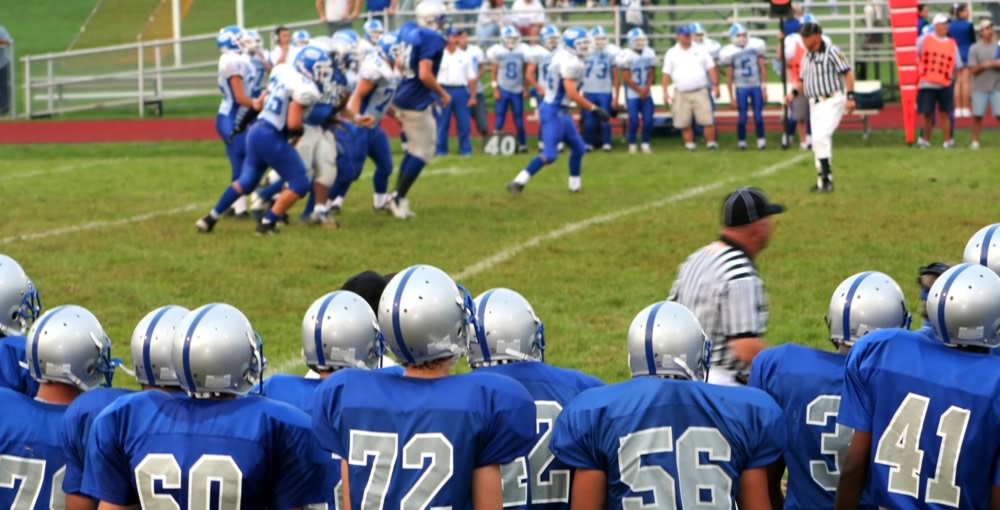Why sports physicals are important.
August 6, 2019

We are a few short weeks from the first day of school, but many high school athletes in Central and South Texas have already begun reporting for practice.
“Football, cross country, tennis, cheerleading, and volleyball all start practices in early August,” said Dr. Gude. “With temperatures soaring to 100 degrees, it’s my belief you want to be aware of any health issues your student athlete may be dealing with to prevent any type of injury, especially heat exhaustion.”
In Texas, the University Scholastic League requires student athletes to complete a pre-participation physical examination prior to junior high athletic participation and in the first and third years in high school athletic competition. Local district policies may require an annual exam.
“High school sports in Texas are competitive, and the training and conditioning a student athlete endures does warrant a physical examination to assure students are safe playing their sport and there are no underlying issues that could impact a student’s health while competing. Plus, kids are growing and changing each year, and it’s important to track health changes.”
The physical examination begins with a medical history review where physicians learn about lifestyle, previous illnesses or injuries, health challenges or concerns.
Medical history questions could include:
- serious illnesses among family members
- illnesses that you had when you were younger or may have now, such as asthma, diabetes, or epilepsy
- previous hospitalizations or surgeries
- allergies (to insect bites, for example)
- past injuries (including concussions, sprains, or bone fractures)
- whether you’ve ever passed out, felt dizzy, had chest pain, or had trouble breathing during exercise
- any medications that you are on (including over-the-counter medications, herbal supplements, and prescription medications)
“Medical history paints a ‘health picture’ vital for assessing a student’s health,” said Gude. “If a student is struggling with asthma and runs cross country, we may be able to find solutions like a different type of inhaler that can help that student be more comfortable and efficient when competing in their sport.”
The exam continues with recording height and weight, checking vital signs like blood pressure and heart rate, a vision test, and examination of vital organs checking heart, lungs, abdomen, ears, nose and throat. Physicians will also evaluate posture, joints, strength and flexibility.
“If a child doesn’t see a primary care physician or pediatrician regularly, a sports physical is an excellent opportunity to check in, monitoring growth and health concerns,” said Dr. Gude.
Texas MedClinic offers sports physicals. Check-in online to see a provider now.




